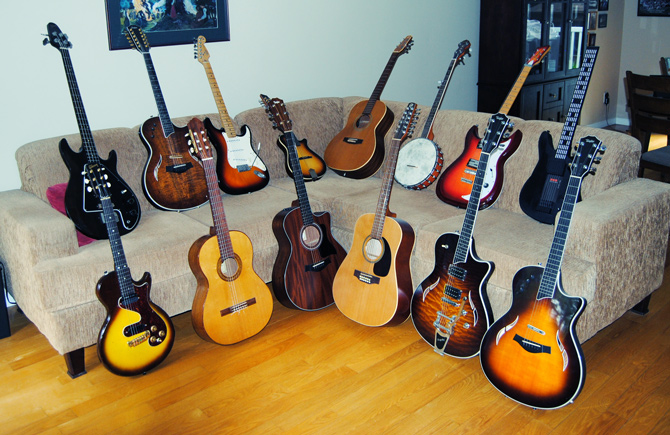Robert Wilkins (1896 – 1987) was an American country blues guitarist and vocalist, the son of an African-American father and a white and Cherokee mother. Wilkins was born in Hernando, Mississippi., at the center of the cotton industry. He recalls making the 22-mile trip from Hernando to Memphis as a small boy. “We would drive a wagon or buggy to Memphis.”, he said. “I hauled five bales of cotton on a two-mule team to the cotton shed. Then I picked up freight to take back to the merchandise store.”
When Wilkins was very young, his father was forced to leave Mississippi to avoid prosecution on bootlegging charges. His mother remarried a very fine guitar player who taught Robert how to play. After service in World War I, Wilkins played on the same circuit as did Furry Lewis, Memphis Minnie and Son House. He also organized a jug band to capitalize on the “jug band craze” then in vogue. Like many of his contemporaries, he played for very different audiences throughout the South and needed to be versatile to make a living. Consequently, he played ragtime, blues, minstrel songs, and gospel music with equal facility and dexterity. He recorded four sides for Victor Records in 1928 and eight sides for Brunswick Records the following year, including “That’s No Way To Get Along.” Thanks to his outstanding guitar talent, he was also asked to play on a number of recordings by other artists, including Will Shade, the founder of the influential Memphis Jug Band and one of the architects of what would later be known as The Memphis Sound.
In 1935, Wilkins recorded five additional titles for Vocalion Records but sales were poor during the Great Depression and he saw the writing on the wall. In 1936, he witnessed a murder at one of his performances and he started doubting his choice of careers. At that time his wife also became very seriously ill and Wilkins, a religious man, offered his life to God in exchange for that of his wife. His wife survived and Wilkins kept his pledge and joined the Church of God in Christ, becoming an ordained minister in 1950. Wilkins specialized in healing and herbal remedies but never stopped playing the guitar, although he left the blues for more appropriate gospel numbers. However, he kept his old blues guitar arrangements and played them as instrumentals. Occasionally, he would add religious lyrics to his earlier blues pieces and create a “new” song, which he did with “That’s No Way To Get Along.” The new lyrics were based on Christ’s parable to the Pharisees about the prodigal son, the third and last parable of a cycle of redemption found in the Bible. He named the resulting song “Prodigal Son”, which he recorded for Piedmont Records in 1964. “Prodigal Son” was then famously taken up by The Rolling Stones on their album “Beggars Banquet” in 1968.
The Reverend Robert Wilkins was “rediscovered” in the early 1960’s, like many bluesmen from the early days when roots music was being created. He was persuaded to record an album of religious material but never played the blues again. It is very likely that “That’s No Way To Get Along”, one of the very best blues songs I have ever heard, would have been lost and forgotten, were it not for the determination of some contemporary artists to preserve the music of the past. I must mention the work of Valerie and Ben Turner, a married couple who play Piedmont Style blues with great style and vitality. Piedmont, a literal French translation of “foothill”, is a plateau of the Eastern United States that sits between the Atlantic coast and the Appalachian mountains. In addition, Guy Davis is a tremendous artist whose voice and guitar playing really rejuvenate the blues that was. Davis is the son of Ruby Dee (1922-1914) and “Ossie” Davis (1917-2005). Both were actors, poets, playwrights, screenwriters, journalists, and civil rights activists.
The Reverend Robert Wilkins died in Memphis in 1987 at the age of 91. His son, the Reverend John Wilkins, continues his father’s gospel legacy.
Richard Séguin – voice, acoustic guitar
Roch Tassé – shaker
